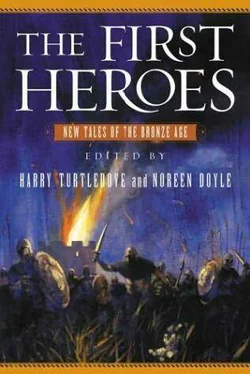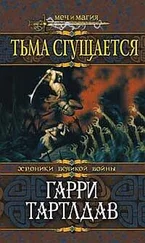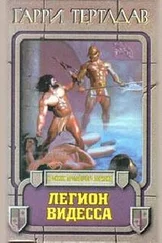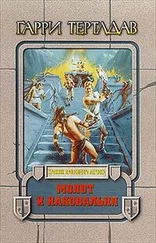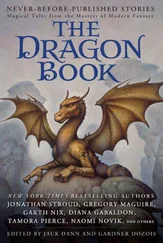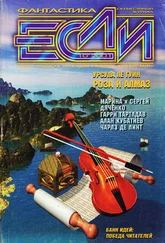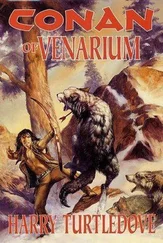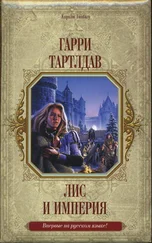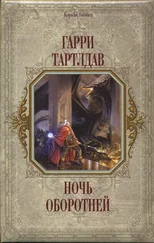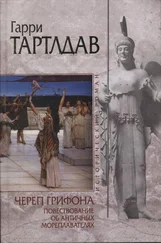Гарри Тертлдав - The First Heroes
Здесь есть возможность читать онлайн «Гарри Тертлдав - The First Heroes» весь текст электронной книги совершенно бесплатно (целиком полную версию без сокращений). В некоторых случаях можно слушать аудио, скачать через торрент в формате fb2 и присутствует краткое содержание. Жанр: Фантастика и фэнтези, на английском языке. Описание произведения, (предисловие) а так же отзывы посетителей доступны на портале библиотеки ЛибКат.
- Название:The First Heroes
- Автор:
- Жанр:
- Год:неизвестен
- ISBN:нет данных
- Рейтинг книги:3 / 5. Голосов: 1
-
Избранное:Добавить в избранное
- Отзывы:
-
Ваша оценка:
- 60
- 1
- 2
- 3
- 4
- 5
The First Heroes: краткое содержание, описание и аннотация
Предлагаем к чтению аннотацию, описание, краткое содержание или предисловие (зависит от того, что написал сам автор книги «The First Heroes»). Если вы не нашли необходимую информацию о книге — напишите в комментариях, мы постараемся отыскать её.
The First Heroes — читать онлайн бесплатно полную книгу (весь текст) целиком
Ниже представлен текст книги, разбитый по страницам. Система сохранения места последней прочитанной страницы, позволяет с удобством читать онлайн бесплатно книгу «The First Heroes», без необходимости каждый раз заново искать на чём Вы остановились. Поставьте закладку, и сможете в любой момент перейти на страницу, на которой закончили чтение.
Интервал:
Закладка:
What kind of culture could carve these stone figures, hands clasped reverently and eyes like saucers, and place them in their temples, presumably as stand-ins for individual worshipers? Their gaze was neither submissively lowered nor raised toward heaven; they were looking at their gods, with an alertness Leslie knew she could not understand. Did the temple's divine statues—made certainly of gold, meaning leaf covering perishable wood, which was why none had ever been found— gaze back, or were they intent upon other matters? The gods were sometimes taken from their temples and transported to other cities; vase paintings and cylinder seals showed them being poled along the river. These were "idols," Leslie supposed, but it was foolish to conclude that they were literally worshiped, any more than those statues of the Blessed Virgin that Connecticut Italians still carried to festivals. Carved images of supplicants stood before gilt representations of divinities in an enactment doubly signified, creating a field of force no instruments can measure. Trent couldn't use this, though he might be interested in the "sacred marriage" hymns, which made clea that the new year's ritual ended in sexual consummation between the city's ruler (who assumed the role of the god Dumuzi) and a priestess who represented divine Inanna. More metonymy, although perhaps the gods were recognized as physically present in their surrogates. Same with the food, she wrote in a file she was compiling for Trent's use. Everyone knew that the food set out for the gods was actually consumed by the temple staff. Nothing is stone literal; it all hovers between levels of mediation, and we can't tell where to draw the line.
This was evasion, and Leslie knew that Trent would brush it impatiently aside. The "Stele of the Vultures" was so named because one panel showed vultures flying off with the heads of slain soldiers, and there was no reason to believe that Sumerian armies showed mercy to their captives in any of their endless campaigns. Prisoners who could not be ransomed were killed or mutilated, and what else could you expect? The ancient world did not have POW camps. Trent's novelizations could not gratify the gamers' zeal for battles without acknowledging this truth.
The textbooks gave few women's names, but Leslie remembered a goddess known for mercy named Nanshe, and decided in the absence of evidence to the contrary that Sumerians sometimes named their children after minor gods. She added some more lines about the girl and her family, spent a few minutes reading news updates (a habit now faintly obsessive, but she couldn't help it), then took herself to bed. Drifting past shoals toward sleep, she thought of Nanshe, who spoke sometimes with the water-carrier, a great-shouldered man baked like a brick by the sun, who had been captured and blinded during a war years ago. He stood all day drawing water from the levee and carrying it along the road to the village square, the thick pole with buckets swaying at either end bowing across his back like an ox yoke. Mudu, the kids called him, as he had apparently said it once when asked his name. "Were you a farmer?" Nanshe asked him as he walked back toward the well, buckets and pole slung easily over one shoulder. She felt pleased to have inferred this after watching his practiced motions with the shaduf—when temple servants were sent for water, they slopped and wasted effort.
"La-ul," the man replied curtly. The intensifier suggested disdain for the question.
Nanshe was taken aback. "You weren't an artisan," she guessed after a moment; a blind potter or weaver could still ply his trade, or at least serve as assistant.
"Sataru," he said simply. The verb meant to have incised, but Nan-she was slow to understand.
"You mean you were a scribe?"
Mudu didn't turn his face toward her, which was a relief, since his gaze was frightening. "Palace, not temple. Records."
His calloused hands did not look as though they had once held a reed. Nanshe looked at his powerful arms and back, which she had supposed had been his since youth. Various thoughts contested within her, but her merchant's thrift won out and she protested, "Scribing is a valuable trade."
The man grunted. The sounds of men working the shaduf on the levee had evidently reached him, for he turned without pausing onto the path that led to the well, where he set down the pole and began to tie up the first bucket's handle. The polished crossbar over which the rope was slung squealed as he let the bucket drop, and he stretched his arms while they listened to the splash and then the glug of its sinking.
"Water is heavier than clay," he said suddenly.
Nanshe looked up at him, puzzled. "That's not true," she said. She started to say something more, then realized that speaking betrayed her location. She took a step back, and added, "Clay tablets will sink."
Mudu turned and began drawing up the rope. It occurred to Nanshe that he was probably saying that scribes do not carry loads all day. She was still trying to work out why the Palace hadn't ransomed him to his city, or set him to work keeping its own records, or otherwise turned his tangible value to account.
"How many years ago?" she asked. It occurred to her that he might have had children.
A shout carried faintly across the open air. Nanshe turned and saw an adult waving from the path bordering the adjacent field's far side, her mother's cook. She set off at a run, then whirled round to call "Good-bye!" to the slave. If Mudu had once been a palace scribe, he was something other than she had thought.
"If you like dallying at the well, you could bring home some water," Cook observed. She could not discern detail at a distance, or she would have cuffed Nanshe for speaking to the slave. "You didn't send me out with a bucket," Nanshe observed. Then, "How long ago was the war with Umma?" Cook laughed. "You sound like a tablet-house instructor." Nanshe scowled, and Cook pretended to flick water at her. "Which war do you mean?"
Nanshe began to say When they brought back all the slaves, but thought better of it. Sitting in the courtyard with a basket of legumes, she watched Cook cleaning a turtle with a small bronze knife, and wondered whether scribes impressed into battle for their city fought with better weapons than laborers. The household's other knives were flint, while vendors in the market sliced their wares with blades of clay. Was Mudu's weapon also carried back in triumph to Lagash; did it serve Ningirsu in his temple today?
Later Nanshe retrieved her doll from Sud, whose tiny clay soldiers had overrun it. Sitting in the shade of the poplar that arched over the house, she took a reed she had cut and positioned it beside Dolly's arm, as though it were a spear. The figure now looked like Inanna—Nanshe could not imagine an armed woman otherwise—and she reflected that if she took Dolly out to the house they had made for her in the tamarisk brush (Sud had helped, under the impression that he was building fortifications), then the knee-high mud-brick structure, its thatched roof removable to disclose partitioned rooms within, would become perforce Her temple. Nanshe, who knew nothing of any temple's inner chambers, was thrilled at the thought of now gazing upon them.
As she lay that night with Dolly in her arms, the reed spear forgotten under the tree, Nanshe wondered whether she could recruit her mother's assistance in making Dolly a new dress for Festival. Attired like a prosperous merchantwife, Dolly would certainly ...
This isn't what my readers want. The -plot must conform to a gaming scenario; any novelistic texture must grow in the cracks between.
Your readers? They are the game's readers; you're just brought in to entertain them.
Okay, I'm sorry. But if they're reading something I wrote, can I think of them as mine, even if the copyright isn't? At least for as long as they hold open the pages?
Читать дальшеИнтервал:
Закладка:
Похожие книги на «The First Heroes»
Представляем Вашему вниманию похожие книги на «The First Heroes» списком для выбора. Мы отобрали схожую по названию и смыслу литературу в надежде предоставить читателям больше вариантов отыскать новые, интересные, ещё непрочитанные произведения.
Обсуждение, отзывы о книге «The First Heroes» и просто собственные мнения читателей. Оставьте ваши комментарии, напишите, что Вы думаете о произведении, его смысле или главных героях. Укажите что конкретно понравилось, а что нет, и почему Вы так считаете.
